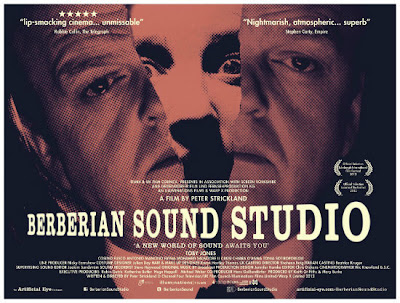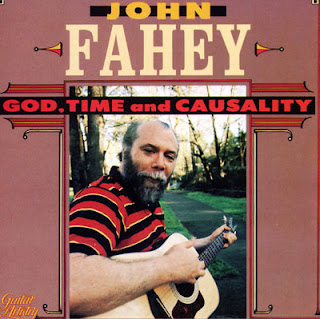This year's VIFF starts September 27th, and the full schedule of movies playing is viewable online here (note if you're searching by letter that some have more than one page of listings). So far the screenings I'm most excited by are of two very smart-sounding genre films, Antiviral (Brandon Cronenberg's debut, which is being very well-received) and Berberian Sound Studio (a meta-horror psychological drama with Toby Jones, who made a terrific Ollie Weeks in The Mist). Of course, there's also Michael Haneke's new film, the Palm D'Or-winning Amour, but I can't say I actually get excited to see Haneke's films, as they are often emotionally gruelling and rather cruel experiences; though I did see and admire The White Ribbon, I haven't really recovered from the English-language version of Funny Games.
(Image from Antiviral)
Documentary-wise, for those concerned with what happens when money-men meddle in movies (or interested in the history of Canadian animation), there's Persistence of Vision, about producer interference in Richard Williams' The Thief and the Cobbler. Velcrow Ripper has a new film, Occupy Love. Ripper is always interesting, but I'm not so enthusiastic about the whole Occupy thing, so I'm more excited that there's a new Peter Mettler doc, The End of Time. Mettler is perhaps the outstanding living Canadian cinematographer and documentary filmmaker, whose career extends from early days shooting for Atom Egoyan, his Egoyan-esque, Fred-Frith-scored feature The Top of His Head, to recent, outstanding documentaries that he shot (Manufactured Landscapes) or directed (Picture of Light; Gambling, Gods and LSD; Petropolis). Scopophiles and those inclined to fetishize images should definitely see his new film - it should be eye-opening indeed.
Animal lovers and animal activists will probably want to catch Street Dogs of South Central. There's also the short Facing Animals, and Leviathan, dealing with fishing (made by the people behind Sweetgrass, which some people really took to when it played the VIFF). Quite a few environmentalist docs this year, seems like they're becoming a staple of the VIFF...
In terms of music-related films, I previewed In Search of Blind Joe Death: The Saga of John Fahey, because I love Fahey's music (see here, or here, or here, for a few very different tastes of his work). I greatly regret missing the one chance I had to see him, when he toured Japan just a year before his death; I was an hour away by train, could have gone... and decided not to. This is the sort of film that is more likely to please a Fahey noob than an old hand - it will serve quite well as a brief introduction to his music, but will not be so satisfying to those who know quite a bit about Fahey and want to know more. The film does have some delightful moments - like Joe Bussard, the 78rpm old-timey archivist, Fonotone founder, radio host, and subject of the vibrant music doc Desperate Man Blues, playing tapes of he and Fahey drunk to heaven and howling out improvised fake blues numbers together - and has some tasty, revealing interviews with friends of Fahey like Stefan Grossman or Dr. Demento (Barrett Hansen). In Search of Blind Joe Death also has its shocks, like an archival interview with Fahey talking about being repeatedly raped by his pedophile father (a bomb dropped very briefly in the film, and not really elaborated on, which may be for the best). It also relates stories of Fahey tracking down Skip James and Bukka White, which are important anecdotes in the history of folk blues, and gives a more-or less accurate overview of Fahey's life and career, which peaked in the 1970's, went into what could have been a terminal decline in the late 1980's and early 1990's, and had an unexpected revitalisation in the last years of Fahey's life (he died in 2001).
The downside of the film is the over-reliance on cutesy animation, the choice to spend too much time on Pete Townshend (I know he's famous but he simply has too little to do with Fahey or his music!), and, most curiously - especially given that at least some time is spent on the Takoma story - pretty much ignoring that Fahey started Revenant Records in his last years, with money from his father's estate. The Charley Patton box is shown, but without explanation that it came out on Fahey's label, or that it won a Grammy; no mention is made of the equally lovely Albert Ayler box, or the fourth volume of the Harry Smith archives, or any of the other Revenant releases (Dock Boggs, Derek Bailey, the American Primitive CDs - there were several!). They're pretty much all out of print now, I suspect - a blip in the history of recorded music - and didn't get half the attention they merited, but they were such objects of beauty, such labours of love, such magnificent achievements in and of themselves that they could have served to balance out the sadder stories from the last couple of decades of Fahey's life (some of which are also not mentioned, like his struggles with Epstein-Barr Syndrome); I would have loved to know more about them. Those who like his Table of Elements material - and I think Womblife holds up very well, in particular - will further be sad that there's almost no footage of him performing any of that material, though it certainly exists (Jim O'Rourke and Thurston Moore, who played a role in Fahey's later years, are also absent, though mentioned). An interesting documentary - but there's lots left to quibble with, lots it leaves out.
One Fahey tidbit that I can't blame them too much for not mentioning, but which is definitely of interest to cinephiles- and relevant to my Mark Frechette post below! - is that Fahey was originally going to be the one to score the "lovemaking in the desert" scene in Antonioni's Zabriskie Point. He found Antonioni very frustrating, according to an account of the time he spent in Rome that appears in the booklet for the 2CD version of Zabriskie Point soundtrack (apparently excerpted from Fahey's memoir, How Bluegrass Music Destroyed My Life). One night over dinner, Antonioni was "expounding on the evil and decadence of the United States," and Fahey objected; a heated argument followed, and - as Fahey puts it - "I decked him." As one might expect, Fahey's music was never used; though Fahey's composition "Dance of Death" still appears in the film, Jerry Garcia was called in to re-score the film's centrepiece. By the way, the image above is the cover for the upcoming, limited-edition 4 Men with Beards 6 LP box set of early Fahey recordings, The Transcendental Waterfall. Anyone wishing to buy me an expensive gift... well...
Also in terms of music-related films, the town's avant-accordion scene should take heed of Soundbreaker: The World of Kimmo Pohjonen... but for now, I think I'm going to leave y'all to explore the VIFF program on your own!






No comments:
Post a Comment